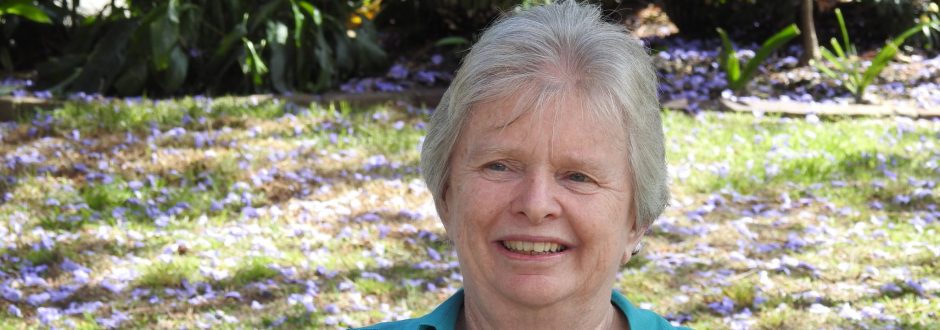I believe we need to seriously depth our understanding of what a compassionate response to the Syrian crisis really means, writes Good Samaritan Sister Clare Condon.
BY Clare Condon SGS
A great theologian of the twentieth century, Edward Schillebeeckx, wrote: “Without prayer or mysticism politics soon becomes cruel and barbaric. Without political love, prayer or mysticism soon becomes sentimental or uncommitted interiority”. It seems to me that this statement has never been more true than it is today across our world.
Hundreds of thousands of men, women and children are fleeing from unspeakable cruelty and barbarism in Syria. Many of us look on in dismay, overwhelmed with feelings of helplessness and despair. Meanwhile, political leaders squabble about their responsibilities for responding to this incredible wave of human suffering, by talking about quotas and strict limits in numerical terms, rather than recognising the humanity of the real people affected. Is this in itself not another form of cruelty and barbarism?
Over the past few weeks much has been written about the plight of the people of Syria; surely no more needs to be said. However, I think that Schillebeeckx’s 1987 statement has something quite profound to offer, even to our secularised Western world which, for the most part, does not value prayer or mysticism.
Prayer and mysticism are not part of the political narrative. Yet, wise political judgement requires self-reflection and communal discernment. This process of reflection on values is what seems to be missing from the political agenda of many world leaders at the moment.
The civil war in Syria, now in its fifth year, has been allowed to progress without concerted and determined efforts by world powers to find a negotiated peace for the sake of ordinary people. The United Nations Security Council has been held captive by the vetoes of Russia and China in relation to four separate resolutions to find an end to war over these years. In the meantime, it’s estimated that over 200,000 people have been killed in Syria and four million displaced.
Prayer and mysticism are not disembodied realities, nor is self-reflection and communal discernment. As Schillebeeckx rightly points out, they find expression in real, practical love for the polis – the people; they find expression in compassion. And this is exactly what the world community is now demanding of its leaders. There is a groundswell of people throughout the world (largely due to the tragic image of a dead little boy washed up on a beach) who are rightly calling for a compassionate response to this Syrian crisis – and some governments are beginning to respond.
Yet, I believe we need to seriously depth our understanding of what a compassionate response really means. We, the rich, the safe and the comfortable, can be inclined to show compassion in a superficial and condescending way to those who are being driven from their homes and countries. We can lend a helping hand, but a very limited helping hand, to some and not others. We are lauded for offering such support out of our excess. Such action can be good in itself, but it can lack a real understanding of our common humanity and the true meaning of the word “compassion”.
I think that often we Christians can have a false understanding of compassion, which is not in tune with the Gospel message. While well-intentioned, our compassion can be a sentimental response which has no real depth or long-term effective action. The compassion of the Christian Gospels, however, is grounded in human rights and human dignity; there is nothing condescending, sentimental or selective about it. It recognises the equality and dignity of every human person regardless of ethnicity, colour, religion or nationality. But the compassion of the Christian Gospels comes with a cost; it requires us “to suffer with” another. Perhaps that’s why we often opt for a more superficial expression?
In the parable of the Good Samaritan, it was the enemy, the outsider, the one despised, who acted with true and heart-felt compassion because this person attended to the real needs and the dignity of another fellow human being. There is nothing sentimental or condescending about this Gospel story, and yet, our popular culture often turns ‘the Good Samaritan’ into simply a ‘do-gooder’ who provides the bare minimum to assist in human crises. Such a sentimental response can simply make the ‘do-gooder’ feel good, but do little for the long-term well-being of the person in distress.
A response of true compassion by world political leaders surely would seek to break down the divides of national borders, of hatred and vilification, which underlie the wars and violence being inflicted on the ordinary people of Syria and other parts of the world. A truly compassionate response would place human rights and human dignity at the fore of any global endeavour to bring peace and security.
For compassion to be true and substantive, the cause of the problem needs to be identified and addressed. In the current tragic situation we are witnessing, it seems that German Chancellor Angela Merkel is standing apart from other political leaders, calling for a reflective and consultative approach. Might voices such as hers be those who could change the current “cruel and barbaric” political climate to one that respects the dignity and humanity of all peoples?
Only such an approach can create a new world order, where there could be a greater congruency between the rhetoric of compassion and the real response of governments and individuals to the human person’s right to freedom and justice. This congruency would replace a sentimental compassion which quickly fades and leaves the suffering ones still alone and disempowered.
